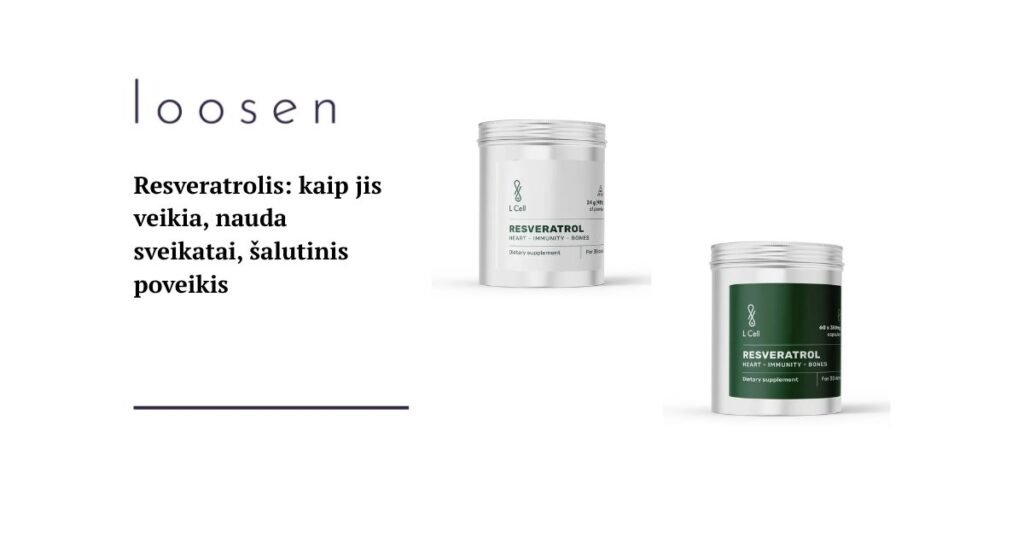Chlorella is a single-celled freshwater green algae that has impressive nutritional properties – complete proteins, vitamins, minerals, chlorophyll and antioxidants, making it a popular dietary supplement for detoxification, immune system support and overall health.
This article explores the nutritional composition of chlorella, its synergistic benefits with spirulina, possible digestive side effects, contamination issues, recommended doses and how to incorporate this algae supplement into a balanced wellness routine.
In short
- Chlorella strengthens the immune system, reduces inflammation, supports heart health, helps with respiratory diseases and provides antioxidant protection.
- Combined with spirulina, chlorella creates a synergistic antioxidant synergy and has a more complete nutrient profile.
- Possible side effects: digestive tract disorders, allergic reactions, possible interference with the effects of blood thinners and immunosuppressants.
- Chlorella has a peanut-nutty flavor with green undertones, sometimes with a fishy flavor, especially in powdered form.
- It is generally considered safe to consume 3-5 grams per day during pregnancy, although studies lack sample size and long-term data.
Benefits
Chlorella may enhance immune function, reduce inflammation, support heart health, help keep airways clear, provide antioxidant protection, aid in detoxification, and prevent anemia.
Chlorella supplements may increase white blood cell counts and enhance natural killer cell activity, contributing to a stronger immune response. Compounds such as violaxanthin and carotenoids may have anti-inflammatory effects.
Cardiovascular benefits of chlorella may include lowering blood pressure, improving blood cholesterol levels, and increasing blood vessel flexibility. Respiratory benefits may include potential relief of asthma and COPD symptoms by reducing airway inflammation and improving oxygen saturation.
Rich in antioxidants, including violaxanthin and lutein, this supplement may protect cells from oxidative damage associated with cancer and cognitive decline. It may also aid in detoxification processes and replenish iron levels to prevent anemia.
With vitamin B12, protein, and various minerals, this supplement can be a natural source of multivitamins. However, dosages may vary from person to person, so consult your doctor or personal trainer before taking any supplements.
Chlorella and spirulina
Combining chlorella and spirulina may provide synergistic benefits, particularly in enhancing antioxidant activity and detoxification pathways. The strategic combination of these two microalgae supplements provides a more comprehensive nutrient profile than either one alone.
Spirulina may provide higher levels of protein and iron, while chlorella provides higher levels of fat and a variety of trace elements. Together, they can provide comprehensive support for B vitamins and balanced amino acids.
These algae can effectively complement each other and help support the immune system. Spirulina can enhance the immune response, while chlorella can bind heavy metals and enhance detoxification processes.
In modern supplement formulations, both algae can be found in powder or capsule form, making them easier to take. In addition, their combined omega-3 fatty acids and antioxidants can support cardiovascular health through better lipid management and reduced oxidative stress.
It is recommended to consume 1 to 3 g of each algae per day. However, dosage may vary depending on the individual, so consult your doctor or personal trainer before taking any supplements. Remember, it is important to drink water when taking these supplements to maintain proper absorption.
Where to buy these supplements?
Our selection of chlorella supplements:
Possible Side Effects
Possible side effects of chlorella may include gastrointestinal problems (bloating, diarrhea, gas), green stools, nausea, stomach cramps, and fatigue.
Chlorella may also cause more serious adverse reactions in some individuals. In rare cases, severe allergic reactions such as anaphylaxis, facial swelling, and rash have been reported. Anecdotal reports have linked this algae supplement to more serious conditions, including psychosis, kidney damage, and low platelet counts.
Substandard or contaminated supplements may contain heavy metals or toxins that can potentially cause calcium damage. The supplement may interfere with certain medications, particularly blood thinners and immunosuppressants.
The high iodine content in chlorella may pose a risk to individuals with thyroid disorders. Safety during pregnancy remains uncertain, so it is important to consult a doctor before taking this supplement.
It is important to drink water when taking algae supplements to reduce potential digestive discomfort. Dosage may vary from person to person, so consult a doctor or personal trainer before taking supplements.
What does chlorella taste like?
Chlorella can have a peanut-nutty flavor with green undertones, similar to vegetable juice or green tea. Some consumers may detect fishy notes, especially in powdered form. The intensity of the flavor can be stronger than spirulina, which has a milder, slightly sweeter profile.
Chlorella’s flavor profile can vary depending on several factors:
- Sun-grown varieties may have a fresher, less bitter flavor profile.
- White chlorella can be a neutral alternative without the marine undertones.
- When added to smoothies or chia pudding, the earthy notes may be less pronounced
- Baked goods can absorb chlorella’s stronger flavors, making them less noticeable.
- combining with creamy bases such as yogurt can provide a textural balance compared to the graininess of the powder
For those sensitive to the strong taste of chlorella, the tablets can be swallowed whole, bypassing the taste buds entirely.
Is chlorella safe during pregnancy?
Chlorella supplements may be safe during pregnancy, with no significant side effects reported in studies. Studies have shown normal outcomes for newborns with healthy Apgar scores and development, while maintaining safe maternal biochemical parameters.
Chlorella may be particularly effective in treating pregnancy-related constipation, with 0% constipation in the treated groups compared to 66.7% in the control groups. This benefit may allow for the avoidance of laxatives altogether.
The recommended dosage can range from 3-5 grams per day, usually started between 12-18 weeks of pregnancy and continued until delivery. For optimal tolerability, the daily dose should be divided into several doses. However, dosage may vary from person to person, so consult your doctor before taking any supplements during pregnancy.
Limitations of the available studies include small sample sizes (22 participants in the main studies), open-label design, and lack of long-term follow-up data on postpartum and infant outcomes. Drinking water is also important during pregnancy, along with any supplements.
Other Supplements
Chlorella can be supplemented with these additional supplements for specific health goals, including detoxification, cardiovascular support, blood sugar regulation, immune system support, and antioxidant protection.
To enhance detoxification, milk rose and NAC may work synergistically with chlorella to support liver function and increase glutathione production. These combinations may enhance the body’s natural cleansing processes more effectively than chlorella alone.
Combining chlorella with omega-3 fatty acids and garlic extract may be beneficial for cardiovascular health, which together may help reduce inflammation and manage cholesterol levels. This combination may provide comprehensive support for the circulatory system.
Chromium and berberine may enhance metabolic health, which may complement chlorella’s glucose-regulating properties. These supplements may work together to improve insulin sensitivity and help maintain healthy blood sugar levels.
Immune function may be enhanced by combining chlorella with vitamin D and zinc citrate. This combination may provide greater immune support than either supplement alone.
Antioxidant protection can be maximized by adding quercetin and reishi mushrooms to chlorella, which may enhance its free radical-fighting ability and enhance its stress-reducing benefits.
Depending on the specific supplement combination, dosages may vary from 0.5 to 3 grams per day. Consult your doctor before taking any supplements. Remember, it is important to drink water when taking these supplements to support proper absorption.
Does chlorella interact with certain medications or medical conditions?
Yes, chlorella may interact with certain medications and medical conditions. Chlorella may interact with warfarin due to its high vitamin K content, so blood monitoring may be necessary.
Taking photosensitizing medications may increase the risk of sunburn. Chlorella may also reduce the effectiveness of immunosuppressants by enhancing the immune response, which may be a concern for patients with autoimmune diseases.
It may also enhance the effects of diabetes medications, which may increase the risk of hypoglycemia. Individuals with iodine sensitivity should be cautious about the iodine content in chlorella.
How long does it take to see the benefits of chlorella?
You can start to see the benefits of chlorella after as little as three weeks, and the full effects will be seen within two to three months of consistent use. Initial effects on metabolism and blood sugar regulation may take several weeks.
Immune system improvements, including increased NK cell activity, may be seen after approximately eight weeks of regular supplementation. Cardiovascular benefits, such as improved oxygen delivery, may be seen after approximately three weeks.
Detoxification and antioxidant effects may typically require longer, long-term use before noticeable results are seen. Individual response may vary depending on the consistency of use and personal health factors.
Dosage may vary from person to person, so always consult your doctor before taking any supplements. Chlorella, antioxidants, detoxification, and immune function are key elements to consider when evaluating the effectiveness of this supplement.
How is Chlorella different from other green superfoods?
Chlorella is primarily distinguished from other green superfoods by its unique detoxification capabilities and cellular structure. Unlike most green foods, chlorella may have a rigid cell wall that needs to be processed to absorb nutrients, and may offer a specialized chlorella growth factor for cell repair.
Its higher concentration of chlorophyll, omega-3 fatty acids, and complete amino acid profile may outperform many alternatives, and its exceptional heavy metal binding capacity may provide enhanced detoxification benefits. Important entities associated with chlorella include chlorophyll, cell wall structure, detoxification properties, amino acids, and omega-3 fatty acids.
Should chlorella be taken with food or on an empty stomach?
Chlorella can be taken with food or on an empty stomach. When taken with food, it may increase the absorption of nutrients, especially iron, and reduce potential stomach discomfort.
Taking on an empty stomach may be beneficial for those with faster stomach emptying, may aid in detoxification protocols, and may improve micronutrient absorption. The ideal time may vary depending on the individual’s gut microbiome, type of chlorella preparation, and personal tolerance level.
Dosage may vary from person to person, so always consult your doctor before taking any supplements.








